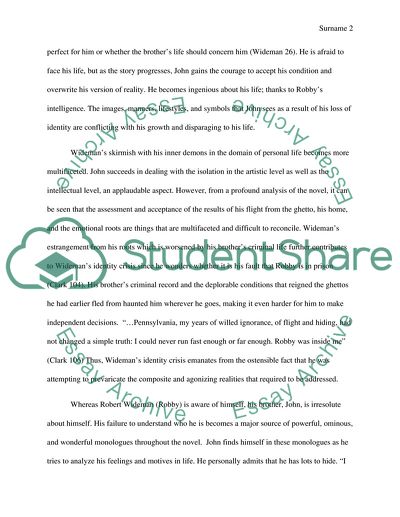Cite this document
(“John Widemans identity crisis in the Brothers and Keepers Essay”, n.d.)
John Widemans identity crisis in the Brothers and Keepers Essay. Retrieved from https://studentshare.org/literature/1701867-john-widemans-identity-crisis-in-the-brothers-and-keepers
John Widemans identity crisis in the Brothers and Keepers Essay. Retrieved from https://studentshare.org/literature/1701867-john-widemans-identity-crisis-in-the-brothers-and-keepers
(John Widemans Identity Crisis in the Brothers and Keepers Essay)
John Widemans Identity Crisis in the Brothers and Keepers Essay. https://studentshare.org/literature/1701867-john-widemans-identity-crisis-in-the-brothers-and-keepers.
John Widemans Identity Crisis in the Brothers and Keepers Essay. https://studentshare.org/literature/1701867-john-widemans-identity-crisis-in-the-brothers-and-keepers.
“John Widemans Identity Crisis in the Brothers and Keepers Essay”, n.d. https://studentshare.org/literature/1701867-john-widemans-identity-crisis-in-the-brothers-and-keepers.


